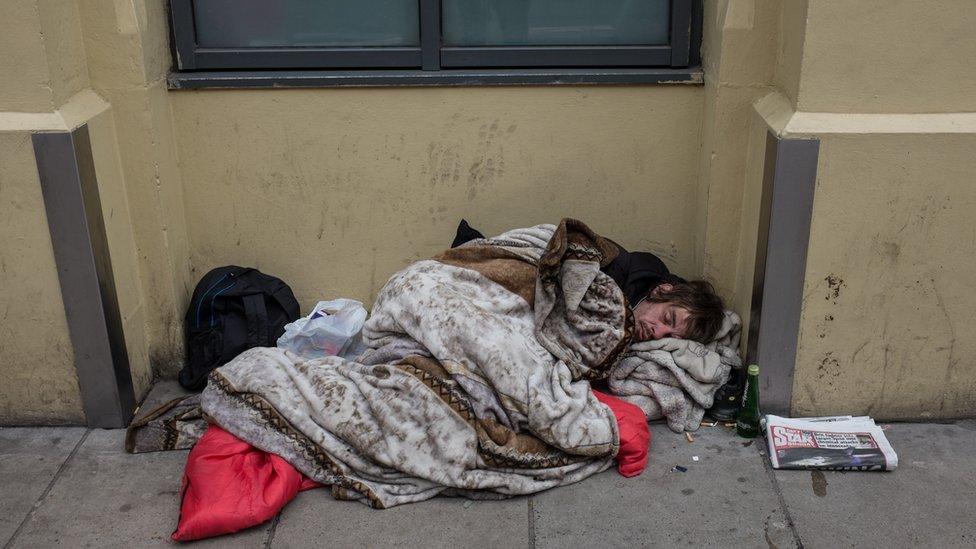Child homelessness at Christmas up 46% in 4 years
- Published
Ellen Clements moved into a hostel with her mother when she was six years old
The number of children who will spend Christmas in temporary accommodation due to homelessness has risen by almost half in four years, a charity says.
Research by Shelter Cymru predicts about 1,600 children will spend the festive period in B&Bs and hostels in Wales - a 46% increase on 2015.
The Welsh Government said it was committed to relieving homelessness.
A woman who spent two Christmases in a hostel from the age of six said it was "really difficult, really scary".
Ellen Clements, from Lampeter, in Ceredigion, said living in such accommodation was "an insecure existence".
Ms Clements, now 19, was six when she and her mother were forced to leave their privately rented home when the landlord needed to sell up.
They were initially moved into a B&B, where they spent six weeks before being moved to a hostel shared by four families.
"The people downstairs would have a lot of parties all the time and so my mum found it really difficult," said Ms Clements.
"She was always torn between locking me in my bedroom because the doors wouldn't lock from the inside, and just leaving it open."
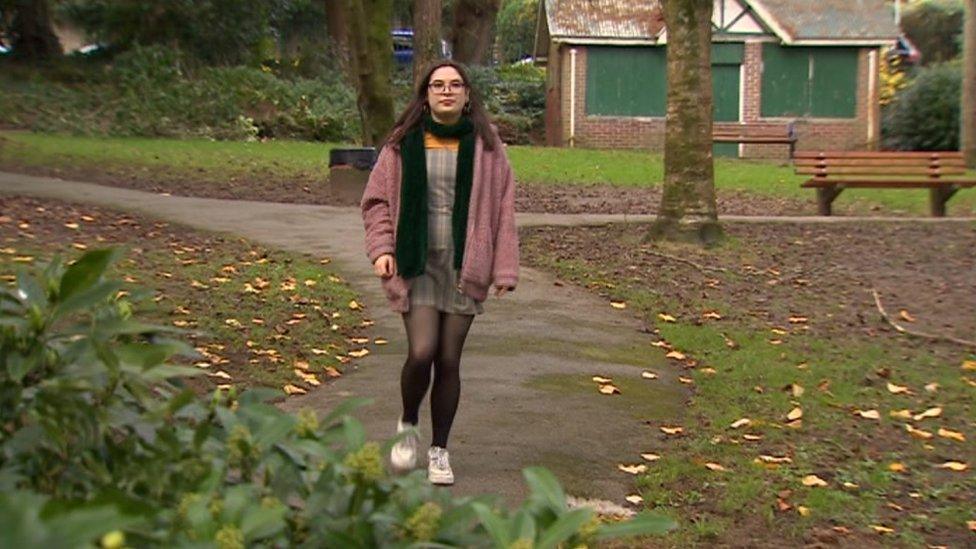
The experience of staying so long in temporary accommodation has left Ms Clements with issues with sleep
And it has left a lasting impact.
"I have a lot of problems with sleeping because it was so loud all the time," she said.
"I would wake up at 4am, 6am then again at 8am. I still have those problems now."
Shelter Cymru, which obtained the figures through Freedom of Information requests and official statistics, also found that more than 3,000 people between the ages of 16 and 24 became homeless in the last year.
Director John Puzey said the figures showed "a really worrying trend".
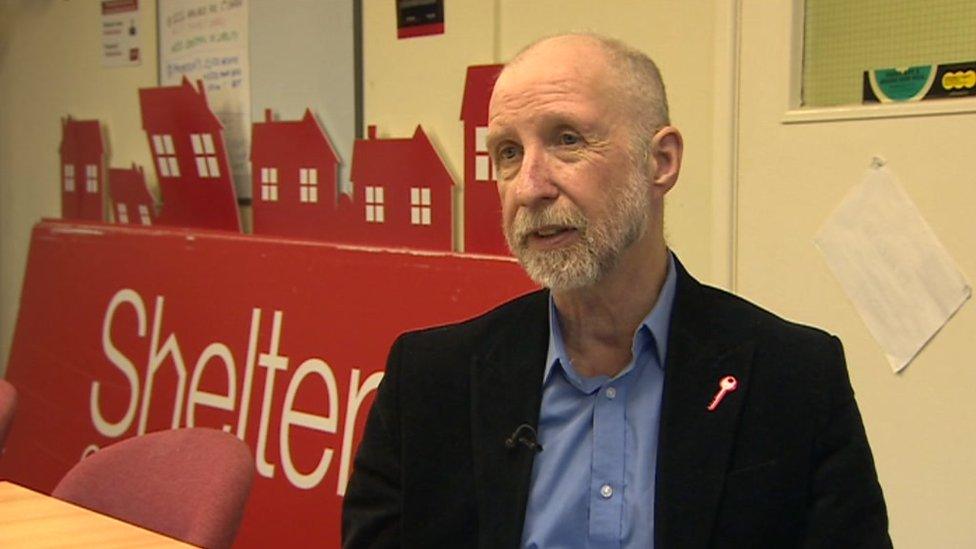
John Puzey, director of Shelter Cymru, said the "shock and trauma" of homelessness could have lasting consequences
"I've been with Shelter for nearly 30 years and what we have seen recently is a real worry," he said.
"When people face homelessness it really has a corrosive effect on the family as a whole.
"The shock and trauma of it can have quite a long-lasting impact."
'It felt normal'
The menial tasks people take for granted - cooking, showering, brushing your teeth - become difficult when there are so many people sharing facilities, Ms Clements explained.
The feeling when they eventually moved into their own home was "absolutely brilliant", she said.
"It made my life normal - so literally just having an album of baby photos, the little things like books, decorations and photos we couldn't have because we were living in a shared house.
"It felt normal, it felt secure. We managed to pick up where we left off."
Ms Clements, who is now studying politics and history at the University of Manchester, said her experiences had "shaped me into who I am today".
A Welsh Government spokesman said it was investing £1.7bn to deliver 20,000 affordable homes.
On Monday, new rules to make councils find accommodation for people who were intentionally homeless were introduced.
- Published3 December 2019
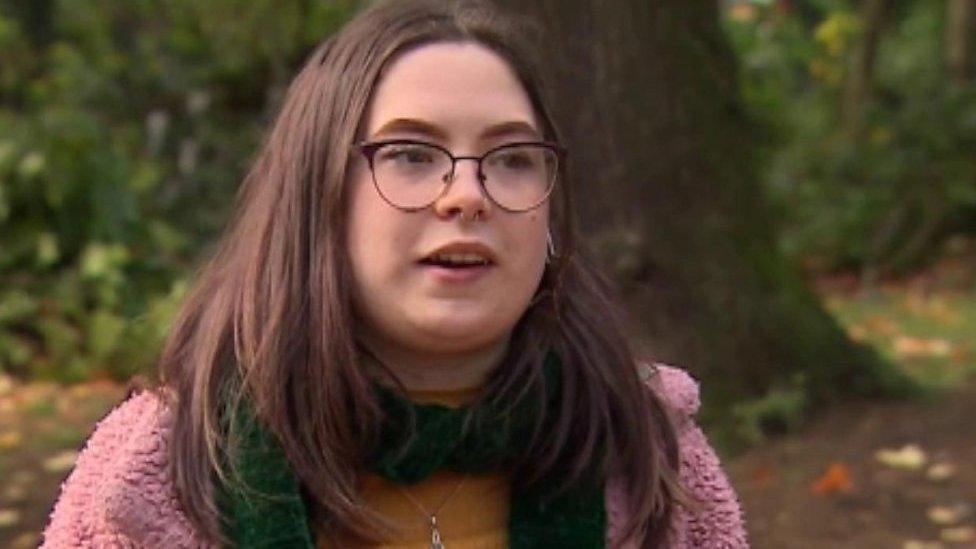
- Published19 January 2019
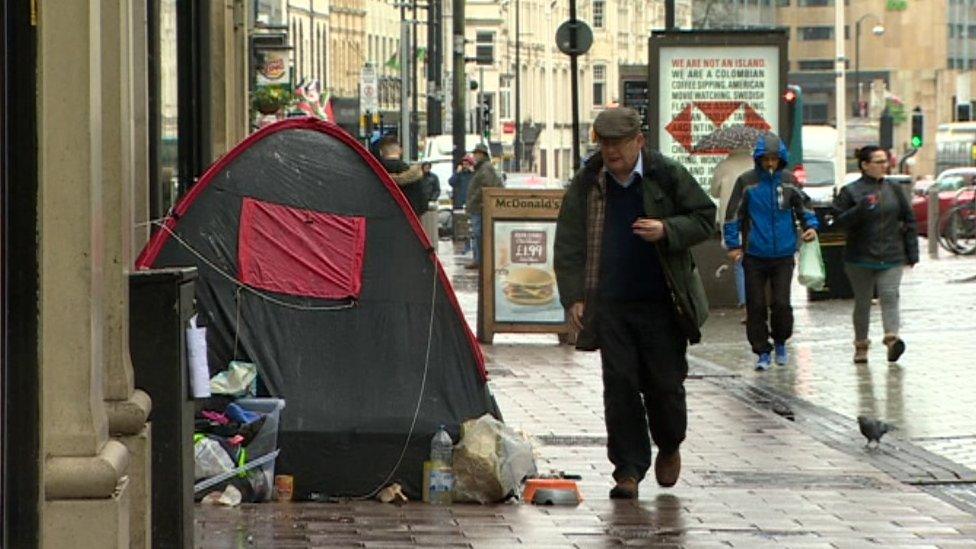
- Published2 December 2019
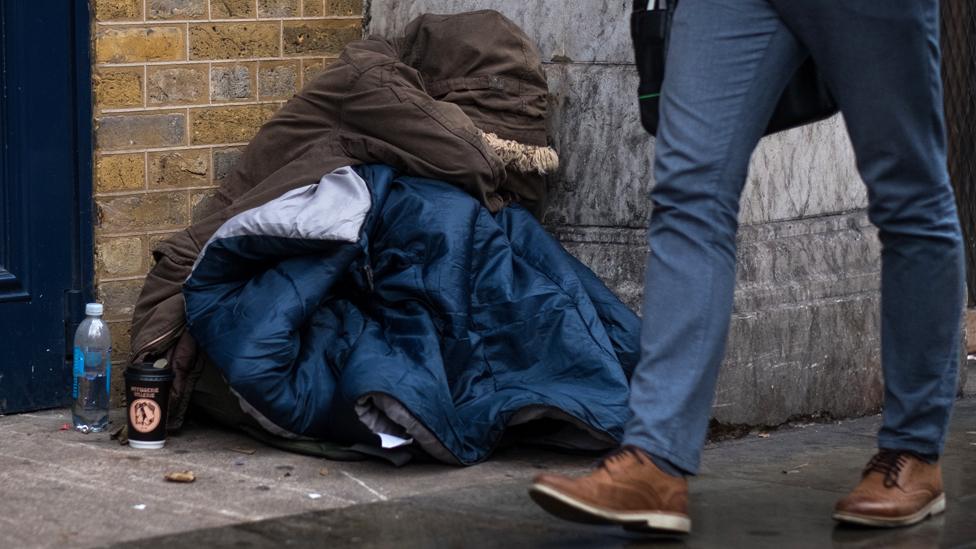
- Published21 May 2019
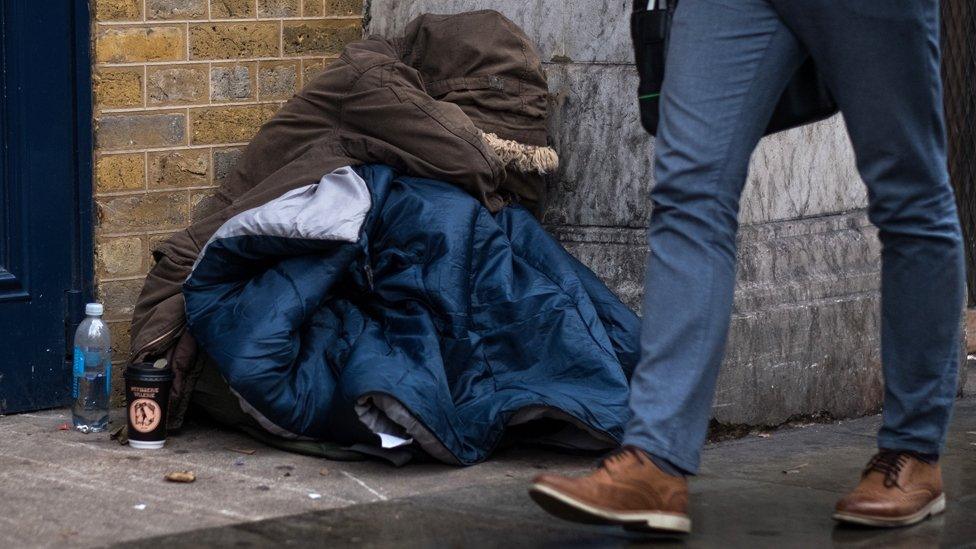
- Published8 May 2019

- Published8 September 2019
